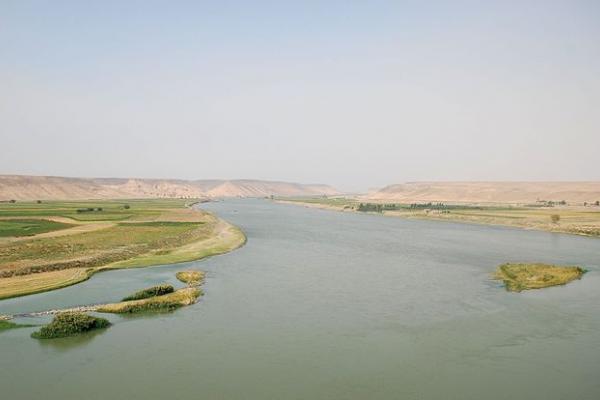
World expert on Turkish water policy issues to speak at Ohio State
The Ohio State Middle East Studies Center, Global Water Institute and the Mershon Center for International Security Studies Hydropolitics Series on Water Scarcity and Water Security host Ayşegül Kibaroglu, world expert on Turkish water policy issues and the history of cooperation across political boundaries in the Euphrates-Tigris region, Thursday, April 21, 6 p.m., room 120, Mershon Center for International Security Studies, 1501 Neil Avenue. Kibaroglu is professor of political science and international relations at MEF University Istanbul, Turkey, and current visiting professor, Lyndon B. Johnson School of Public Affairs, University of Texas at Austin.
Since the second half of the 20th century, transboundary water governance in the Euphrates-Tigris river system has evolved with competitive power dynamics and cooperative institutional development. Kibaroglu’s lecture will focus on the evolution of transboundary water politics in the basin; the Syrian civil war and its fallout, which may cause relations to deteriorate between any of the riparian nations; and the potential for instability in good water governance across the borders of Iran, Iraq, Syria and Turkey.
Kibaroglu has published extensively on the politics of water resources with an emphasis on the Euphrates Tigris river basin including a book volume entitled Building a Regime for the Waters of the Euphrates-Tigris River Basin (Kluwer Law International, 2002). She is the founding member of the Euphrates Tigris Initiative for Cooperation (ETIC), a multi-disciplinary group of academics and professionals from Iraq, Syria and Turkey conducting projects to share knowledge and experience relevant to water resource management and regional cooperation.
This event is free and open to the Public. RSVP requested.
Sponsors include: Mershon Center for International Security Studies, Global Water Initiative, Middle East Studies Center, John Glenn College of Public Affairs, Department of Near Eastern Languages and Cultures, Syrian Student Union, Ohio Water Resources Center, School of Earth Sciences.
This lecture is in conjunction with the Euphrates Tigris Water Issues Workshop, Friday, April 22 on the Ohio State University campus. To attend the workshop, register here. topics will include a Rio Grande Comparison, the current situation with Mosul Dam, and the use of satellite technology, especialy GIS, to address water resource management issues.
Media contact: Melinda McClimans
mcclimans.2@osu.edu
